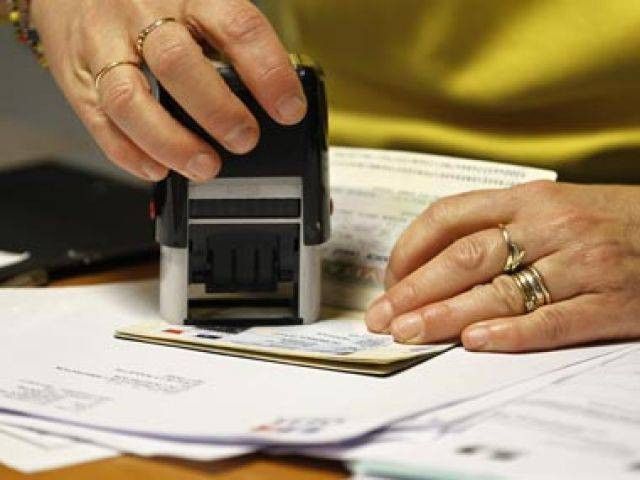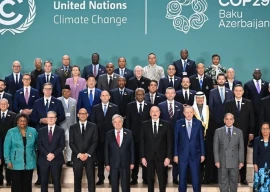
Pakistan's economic struggles have deepened as the IMF's stringent stabilisation measures, including subsidy cuts and higher taxes, have choked economic growth, stifled job creation, and fuelled unemployment, especially among the youth.
However, as misfortunes never come alone, Pakistani workers now face another challenge due to the rejection of their visa applications in Gulf countries, particularly the United Arab Emirates (UAE) – a vital destination for employment and remittances. With businesses at home reeling under inflation and high energy costs, many Pakistanis view overseas opportunities as their only lifeline. However, tightening visa policies in the Gulf are amplifying their despair, compounding Pakistan's economic woes and worsening its foreign remittance outlook.
The combination of domestic economic contraction and diminished overseas employment prospects has created a perfect storm. Remittances, a vital lifeline for Pakistan's economy, are at risk of decline, further straining the country's balance of payments.
With over $5 billion in annual remittances from the UAE alone, this development poses a severe threat to Pakistan's dwindling foreign exchange reserves and household incomes dependent on expatriate earnings. Additionally, the lack of job creation both domestically and inaccessibility to the international markets will eventually lead to rising poverty, social unrest, and a growing sense of uncertainty.
The Pakistan Embassy in Abu Dhabi recently refuted widespread claims circulating on social and mainstream media, stating that no specifics of a visa ban have been shared with Pakistani officials. However, Pakistan's Ambassador to the UAE, Faisal Tirmizi, acknowledged an unusual surge in visa rejections.
Speaking on the sidelines of GITEX (Gulf Information Technology Exhibition) Global 2024 in Dubai two months ago, he described the current wave of rejections as unprecedented. The fact of the matter is that there has never been a focus at the government level to explore the avenue of exporting manpower with the right skills and mindset. Pakistan has faced a historic brain drain over the past two years as worsening economic and political conditions drive skilled and unskilled workers abroad.
While some individuals possess the qualifications needed to succeed, many struggle to adapt to the UAE's evolving job market, which demands specialised expertise and faces intense global competition. This mismatch leaves many Pakistanis unable to secure quality employment.
Out of desperation, some resort to illegal activities such as overstaying visas, begging, or engaging in scams and fraud to survive. These actions damage their personal records and tarnish the reputation of the broader Pakistani community, making it harder for others to secure visas and employment opportunities in the future. To address the visa challenges faced by Pakistan's workforce and improve migration outcomes, Pakistan could draw inspiration from the Philippines' model of organised labour migration and skill development. The Philippines has long been recognised by the World Bank for its proactive approach in training, deploying, and supporting overseas workers. Pakistan could adopt the following strategies:
Unified migration authority
Pakistan should consolidate migration-related functions under one body to streamline processes, protect workers' rights, and coordinate with host countries. This authority could oversee recruitment, ensure labour rights compliance, and manage reintegration programmes for returning workers.
Upskilling programmes
Pakistan can emulate the Philippine Technical Education and Skills Development Authority (TESDA), which offers skills training and certification tailored to global market demands. This includes training in caregiving, IT, healthcare, and language skills.
Establishing partnerships with international training centres and accrediting overseas institutes would enhance the global employability of Pakistani workers.
Pre-deployment training
Before departure, workers should receive training on labour laws, financial literacy, cultural adaptation, and their rights in host countries. Such preparation can reduce exploitation and enhance integration into the host country's workforce.
Bilateral agreements
The Philippines has established agreements for mutual recognition of skills and qualifications with various host nations. Pakistan should prioritise similar agreements, especially in Gulf countries, to ensure smoother transitions for skilled workers.
Promoting overseas employment
Pakistan can set up an e-platform to match skilled workers with international opportunities. Marketing the Pakistani workforce through global campaigns can attract foreign employers and highlight workers' competencies.
With a growing influx of youth entering the job market each year and employment opportunities dwindling due to economic contraction, urgent and strategic interventions are imperative. Pakistan must focus on fostering a steady flow of remittances by equipping its workforce for global demands while simultaneously addressing the socio-economic challenges that threaten to deepen the crisis. A failure to act decisively risks exacerbating unemployment, poverty, and instability, jeopardising the country's economic resilience and social cohesion.
THE WRITER IS A FINANCIAL MARKET ENTHUSIAST AND IS ATTACHED TO STOCKS, COMMODITIES AND EMERGING TECHNOLOGY

1733102329-0/Wayne-Northrop-(1)1733102329-0-405x300.webp)
















COMMENTS
Comments are moderated and generally will be posted if they are on-topic and not abusive.
For more information, please see our Comments FAQ